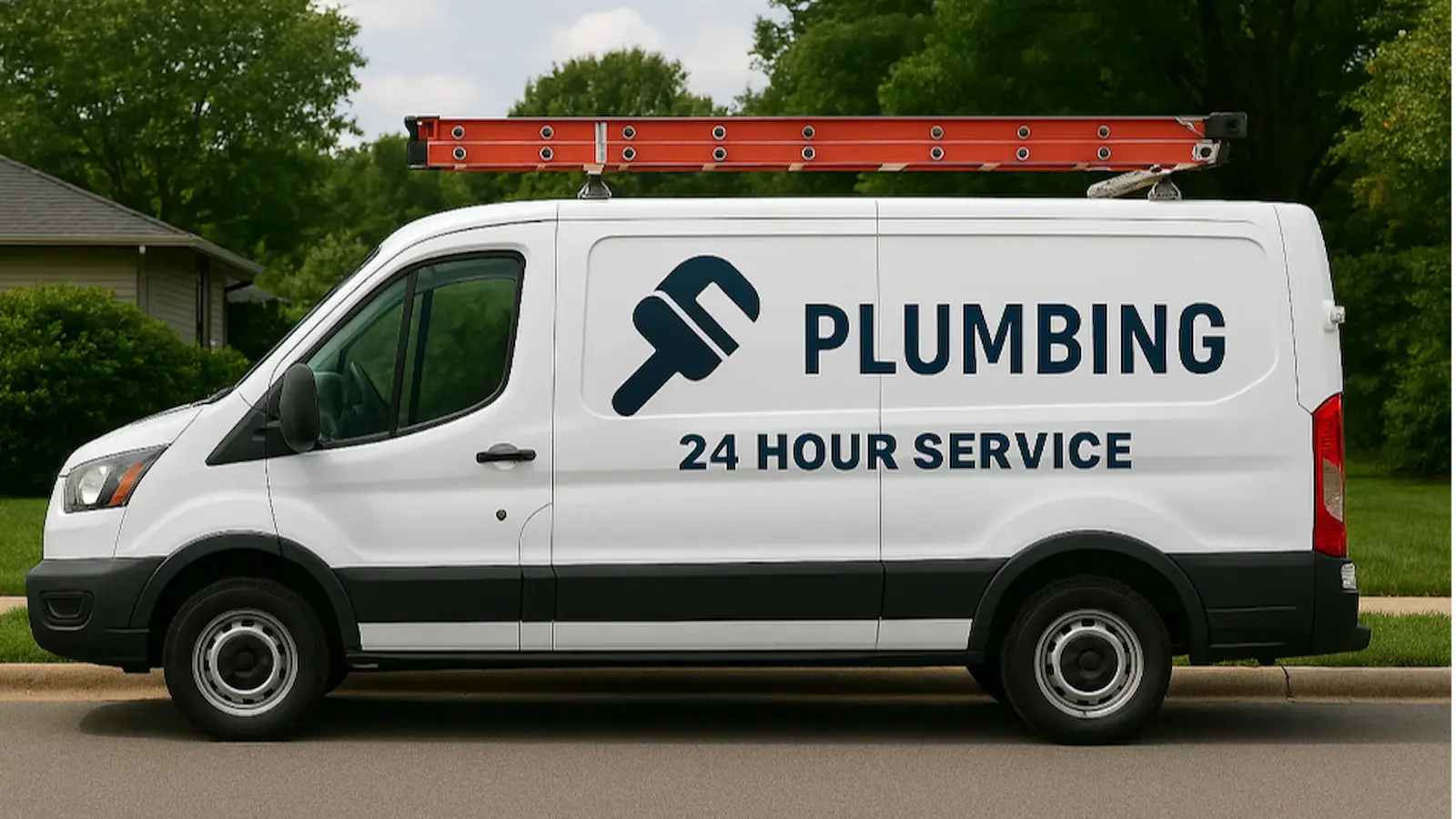Common Business Types
Top Services for
Services & Home Improvement
From erratic outreach
to pipeline consistency
Lead flow depends
on outdated tactics
Teams rely on referrals and seasonal spikes without structured outreach. Pipeline growth remains erratic and difficult to forecast. Visibility collapses when lead generation isn’t proactive or repeatable.
Demand fluctuates without
control or consistency
Teams struggle to maintain pipeline momentum across seasons and regions. Lead flow feels reactive, weakening planning and performance. Growth stalls when outreach isn’t sustained or structured.
Outbound engines built
for repeatability
Teams adopt structured outreach frameworks across service lines and regions. Lead generation becomes predictable, scalable, and conversion-driven. Pipeline health improves through proactive execution.
From transactional hires
to trust-based conversion
Hiring overlooks trust-building
& soft skills
Recruitment prioritizes technical ability over customer connection. Teams lack the interpersonal fluency required to earn trust and drive conversion. Sales and service outcomes suffer when rapport isn’t built.
Teams fail to convert
service-driven leads
Technicians and coaches lack the fluency to sell with confidence. Sales opportunities are missed at the point of contact. Revenue is lost when trust isn’t earned or reinforced.
Onboarding & coaching
built for trust
Teams learn to build rapport and close with confidence. Training reflects service urgency, customer context, and emotional lift. Performance accelerates through structured, role-specific enablement.
From scattered inputs
to forecast clarity
CRM inputs lack
discipline & consistency
Pipeline updates are scattered, incomplete, or skipped entirely. Follow-through breaks down when inputs don’t reflect real deal movement. Forecasting becomes unreliable, and leadership loses visibility.
Deals collapse from poor
follow-through discipline
Teams don’t log updates or track next steps with consistency. Opportunities stall or disappear without structured CRM logic. Revenue is lost when pipeline movement isn’t visible or actionable.
CRM discipline that strengthens
pipeline visibility
Inputs reflect urgency, deal stage, and conversion likelihood. Follow-through becomes predictable and accountable. Leaders gain clarity across roles, timelines, and service types.
From scattered outreach
to targeted lift
Outbound efforts lack
structure & scale
Outreach is inconsistent across roles and channels, reducing impact. Messaging fails to reflect urgency, service value, or buyer triggers. Conversion drops when execution lacks rhythm and lift.
Marketing spend fails
to drive conversion
Campaigns generate low-fit interest without booking velocity. Messaging lacks relevance, urgency, and emotional lift. ROI drops when targeting doesn’t reflect buyer context.
Lead capture strategies
that drive conversion
Messaging reflects buyer urgency, fit, and service relevance. Campaigns lift booking rates through targeted engagement. Revenue grows through precision and lifecycle alignment.
From inconsistent delivery
to reliable engagement
Onboarding lacks structure
& role relevance
Training varies by manager, region, and service type. Teams aren’t equipped to sell or deliver with consistency. Execution becomes unpredictable, weakening customer experience and retention.
Customer satisfaction
varies across engagements
Service quality depends on individual effort, not system design. Inconsistency erodes retention, referrals, and brand trust. Advocacy stalls when delivery isn’t reliable or repeatable.
Performance frameworks
for service-based selling
Execution aligns with customer expectations and conversion goals. Metrics track delivery quality across technicians, coaches, and reps. Consistency lifts retention, referrals, and revenue.
From mixed messaging
to unified delivery
Sales language fragments
across roles & channels
Technicians, coaches, and reps speak in disconnected tones. Messaging lacks emotional lift and service relevance. Customers receive mixed signals, eroding trust and conversion.
Customer satisfaction varies
across engagements
Service quality depends on who delivers, not how it’s designed. Inconsistency weakens retention, referrals, and brand trust. Advocacy stalls when delivery isn’t reliable or repeatable.
Sales language alignment
across all stakeholders
Messaging reflects service urgency and emotional context. Trust builds across every touchpoint, from first contact to close. Conversion lifts when teams speak with one voice.
From friction-filled flows
to automated advocacy
Referral & self-service
systems underperform
Booking and advocacy flows aren’t optimized for ease or scale. Customers face friction when trying to engage or refer. Revenue is lost when automation and clarity are missing.
Visibility fades in
crowded service markets
Providers struggle to differentiate across local and digital channels. Positioning remains generic, limiting awareness and trust. Opportunities are missed when outreach doesn’t elevate brand value.
Referral & self-service
systems that scale
Customers engage and advocate through frictionless digital flows. Booking becomes seamless across channels and devices. Growth accelerates through automated, trust-based enablement.
From isolated success
to repeatable lift
Performance management remains
anecdotal & reactive
Success is isolated and difficult to replicate across roles. Coaching lacks rhythm, metrics, and strategic lift. Leadership struggles to scale quality without structured visibility.
Leadership can’t scale
top-performer behaviors
Coaching remains informal and disconnected from performance outcomes. Success is anecdotal, limiting strategic lift across teams. Growth slows when high-impact habits aren’t codified or tracked.
Hiring & training
aligned for scale
Recruitment prioritizes trust-building and engagement fluency. Training reinforces habits that convert and retain across service lines. Leadership scales performance with clarity and control.
From missed handoffs
to seamless service
Execution breaks down in
multi-touch workflows
Service handoffs stall or misfire across roles. Success depends on individual effort, not system design. High-impact behaviors remain isolated and hard to replicate.
Leadership can’t scale
top-performer behaviors
Coaching remains informal and disconnected from outcomes. Success is anecdotal, limiting strategic lift across teams. Growth slows when habits aren’t codified or tracked.
Execution frameworks for
multi-touch reliability
Workflows reflect customer expectations and conversion logic. Performance scales through structured enablement and role clarity. Service becomes seamless, repeatable, and built for trust.
From erratic outreach
to pipeline consistency
Lead flow depends
on outdated tactics
Teams rely on referrals and seasonal spikes without structured outreach. Pipeline growth remains erratic and difficult to forecast. Visibility collapses when lead generation isn’t proactive or repeatable.
Demand fluctuates without
control or consistency
Teams struggle to maintain pipeline momentum across seasons and regions. Lead flow feels reactive, weakening planning and performance. Growth stalls when outreach isn’t sustained or structured.
Outbound engines built
for repeatability
Teams adopt structured outreach frameworks across service lines and regions. Lead generation becomes predictable, scalable, and conversion-driven. Pipeline health improves through proactive execution.
From scattered outreach
to targeted lift
Outbound efforts lack
structure & scale
Outreach is inconsistent across roles and channels, reducing impact. Messaging fails to reflect urgency, service value, or buyer triggers. Conversion drops when execution lacks rhythm and lift.
Marketing spend fails
to drive conversion
Campaigns generate low-fit interest without booking velocity. Messaging lacks relevance, urgency, and emotional lift. ROI drops when targeting doesn’t reflect buyer context.
Lead capture strategies
that drive conversion
Messaging reflects buyer urgency, fit, and service relevance. Campaigns lift booking rates through targeted engagement. Revenue grows through precision and lifecycle alignment.
From friction-filled flows
to automated advocacy
Referral & self-service
systems underperform
Booking and advocacy flows aren’t optimized for ease or scale. Customers face friction when trying to engage or refer. Revenue is lost when automation and clarity are missing.
Visibility fades in
crowded service markets
Providers struggle to differentiate across local and digital channels. Positioning remains generic, limiting awareness and trust. Opportunities are missed when outreach doesn’t elevate brand value.
Referral & self-service
systems that scale
Customers engage and advocate through frictionless digital flows. Booking becomes seamless across channels and devices. Growth accelerates through automated, trust-based enablement.
From transactional hires
to trust-based conversion
Hiring overlooks trust-building
& soft skills
Recruitment prioritizes technical ability over customer connection. Teams lack the interpersonal fluency required to earn trust and drive conversion. Sales and service outcomes suffer when rapport isn’t built.
Teams fail to convert
service-driven leads
Technicians and coaches lack the fluency to sell with confidence. Sales opportunities are missed at the point of contact. Revenue is lost when trust isn’t earned or reinforced.
Onboarding & coaching
built for trust
Teams learn to build rapport and close with confidence. Training reflects service urgency, customer context, and emotional lift. Performance accelerates through structured, role-specific enablement.
From inconsistent delivery
to reliable engagement
Onboarding lacks structure
& role relevance
Training varies by manager, region, and service type. Teams aren’t equipped to sell or deliver with consistency. Execution becomes unpredictable, weakening customer experience and retention.
Customer satisfaction
varies across engagements
Service quality depends on individual effort, not system design. Inconsistency erodes retention, referrals, and brand trust. Advocacy stalls when delivery isn’t reliable or repeatable.
Performance frameworks
for service-based selling
Execution aligns with customer expectations and conversion goals. Metrics track delivery quality across technicians, coaches, and reps. Consistency lifts retention, referrals, and revenue.
From isolated success
to repeatable lift
Performance management remains
anecdotal & reactive
Success is isolated and difficult to replicate across roles. Coaching lacks rhythm, metrics, and strategic lift. Leadership struggles to scale quality without structured visibility.
Leadership can’t scale
top-performer behaviors
Coaching remains informal and disconnected from performance outcomes. Success is anecdotal, limiting strategic lift across teams. Growth slows when high-impact habits aren’t codified or tracked.
Hiring & training
aligned for scale
Recruitment prioritizes trust-building and engagement fluency. Training reinforces habits that convert and retain across service lines. Leadership scales performance with clarity and control.
From scattered inputs
to forecast clarity
CRM inputs lack
discipline & consistency
Pipeline updates are scattered, incomplete, or skipped entirely. Follow-through breaks down when inputs don’t reflect real deal movement. Forecasting becomes unreliable, and leadership loses visibility.
Deals collapse from poor
follow-through discipline
Teams don’t log updates or track next steps with consistency. Opportunities stall or disappear without structured CRM logic. Revenue is lost when pipeline movement isn’t visible or actionable.
CRM discipline that strengthens
pipeline visibility
Inputs reflect urgency, deal stage, and conversion likelihood. Follow-through becomes predictable and accountable. Leaders gain clarity across roles, timelines, and service types.
From mixed messaging
to unified delivery
Sales language fragments
across roles & channels
Technicians, coaches, and reps speak in disconnected tones. Messaging lacks emotional lift and service relevance. Customers receive mixed signals, eroding trust and conversion.
Customer satisfaction varies
across engagements
Service quality depends on who delivers, not how it’s designed. Inconsistency weakens retention, referrals, and brand trust. Advocacy stalls when delivery isn’t reliable or repeatable.
Sales language alignment
across all stakeholders
Messaging reflects service urgency and emotional context. Trust builds across every touchpoint, from first contact to close. Conversion lifts when teams speak with one voice.
From missed handoffs
to seamless service
Execution breaks down in
multi-touch workflows
Service handoffs stall or misfire across roles. Success depends on individual effort, not system design. High-impact behaviors remain isolated and hard to replicate.
Leadership can’t scale
top-performer behaviors
Coaching remains informal and disconnected from outcomes. Success is anecdotal, limiting strategic lift across teams. Growth slows when habits aren’t codified or tracked.
Execution frameworks for
multi-touch reliability
Workflows reflect customer expectations and conversion logic. Performance scales through structured enablement and role clarity. Service becomes seamless, repeatable, and built for trust.








